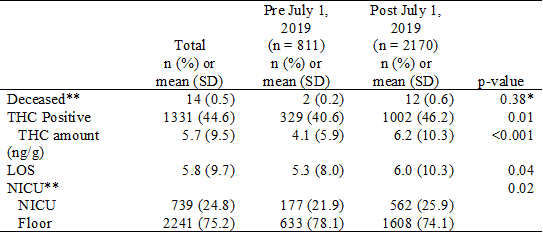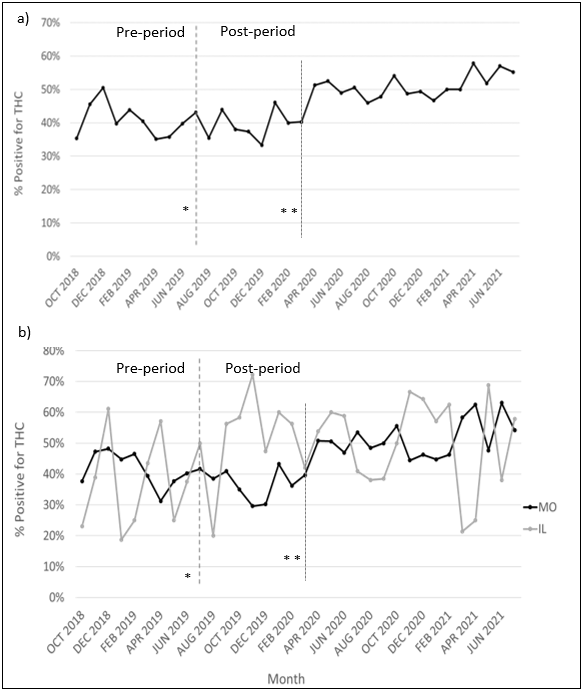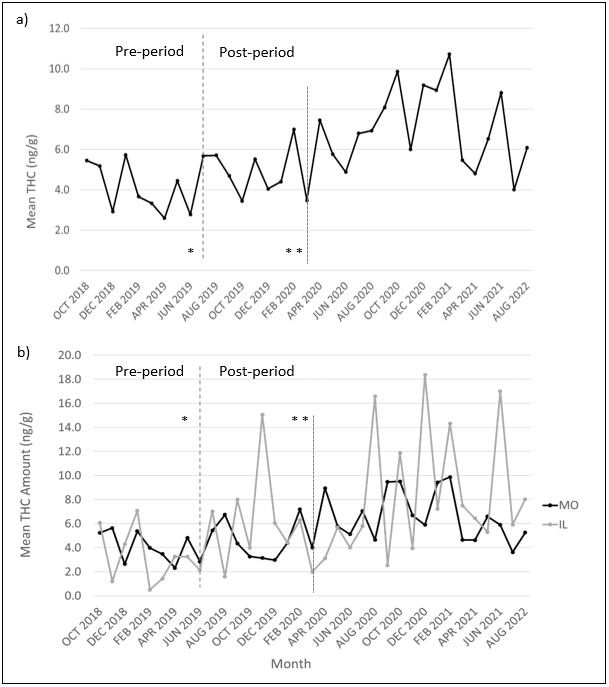Neonatology
Session: Neo-Perinatal Health Care Delivery 3: Epidemiology/Health Services Research
260 - Impact of Marijuana Legalization in IL and MO on Fetal Exposure to THC
Sunday, May 5, 2024
3:30 PM - 6:00 PM ET
Poster Number: 260
Publication Number: 260.2219
Publication Number: 260.2219

Sarah L. Milota, MD (she/her/hers)
NICU Fellow
SSM Health Cardinal Glennon Children's Medical Center
Saint Louis, Missouri, United States
Presenting Author(s)
Background: Fetal exposure to marijuana is associated with adverse impacts on the developing brain. There is an urgent need to investigate the impact of legalization of tetrahydrocannabinol (THC) on the prevalence of fetal exposure. Illinois became the 11th state to legalize recreational marijuana for adults in 2019. Medicinal marijuana use in Missouri was approved in 2018. Of note, recreational marijuana was not legalized in MO until after the study period ended.
Objective: The study aim is to characterize the impact of marijuana legalization on fetal THC exposure at a single, delivery center in the Saint Louis, MO region, using qualitative and quantitative data.
Design/Methods: In this retrospective, observational study umbilical cord samples were collected from infants whose mothers had risk factors for possible THC use in pregnancy. Data was collected from October 1, 2018-August 31, 2021. The pre- and post-legalization periods were separated by July 1, 2019, which represents the legalization of recreational marijuana in IL. The risk factor criteria and the testing methodology remained the same in the pre- and post-legalization periods. The cord samples were then tested for THC using liquid chromatography-tandem mass spectrometry. Both qualitative exposure and quantitative amounts were collected.
Results: 2981 umbilical cords were tested for THC during the study period. In the pre-legalization period, of the 811 cords, 329 (40.6%) were positive vs. 1002 (46.2%) of the 2170 cords post legalization (p 0.01). Mean THC levels (ng/g) were 4.1 (SD 5.9) vs 6.2 (SD 10.3) in the pre and post period (p < 0.001). The length of hospital stay [5.3 days (SD 8) vs 6 days (SD 10.3), p< 0.04] and the percentage of NICU admissions (21.9% vs 25.9%, p 0.02) were also greater in the post-legalization period.
Conclusion(s): In this single-center experience, legalization of recreational marijuana in IL has been associated with increased prevalence and amounts of fetal exposure to THC. Our data is concerning, especially since some institutions have stopped testing for THC routinely. The increasing fetal exposure since legalization constitutes a public health concern and emphasizes the need for public awareness, continued testing, and follow up of this vulnerable population.



